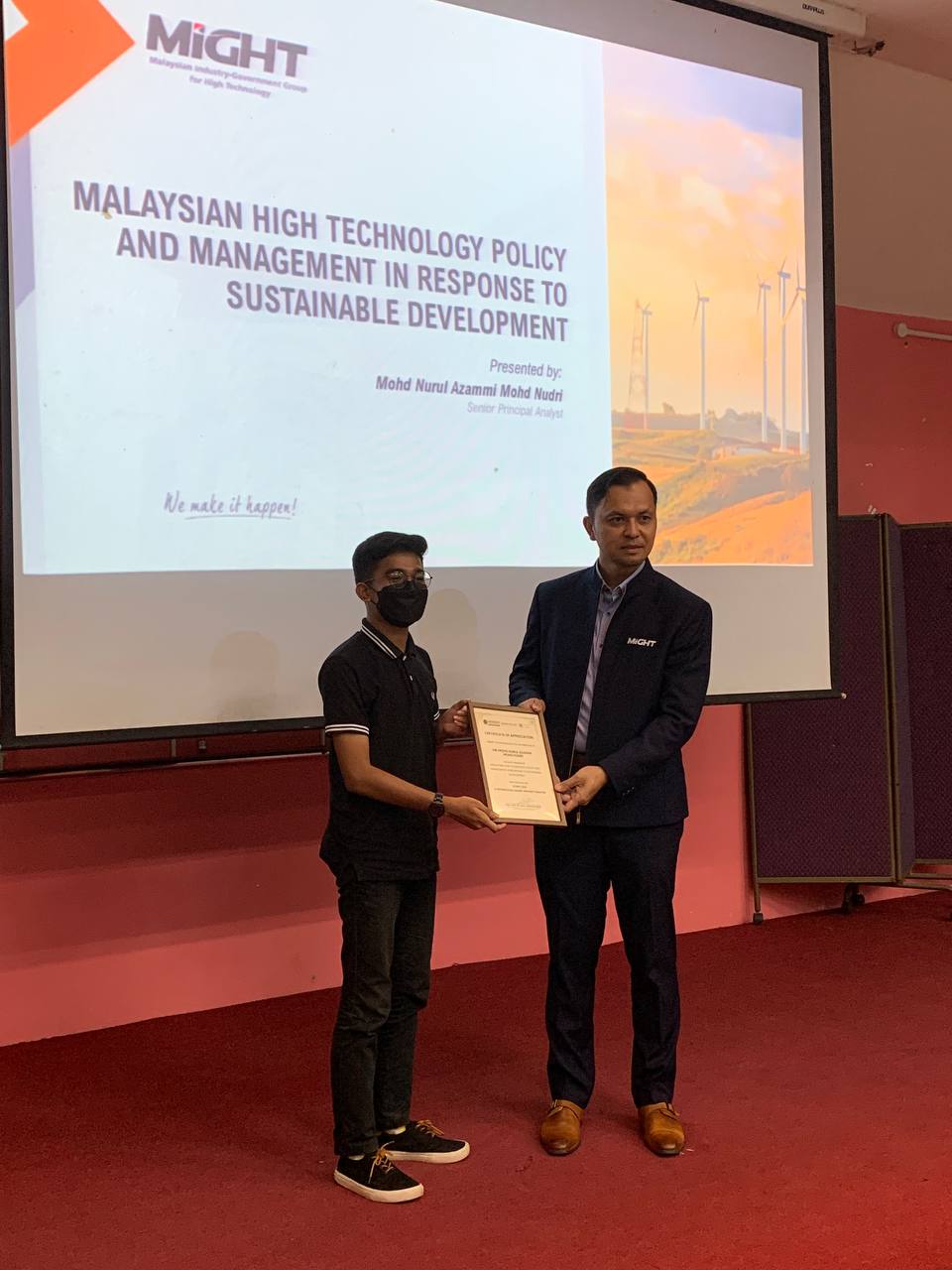By Muammar Hadi
GOMBAK, 23 May 2022: With many jobs becoming obsolete today, it is important for us to acquire the ability to learn and unlearn in order to succeed and not be left behind, according to Mohd Nurul Azammi Mohd Nudri, a senior analyst.
The Senior Principal Analyst from Malaysian Industry-Government Group for High Technology (MIGHT) was giving his talk on Monday on “Malaysian High Technology Policy and Management in Response to Sustainable Development”.
The talk was held with the purpose for students to gain a better understanding of Malaysia’s high technology industry and breaking the echo chamber of IIUM’s political science major students on the policy and management of technology.
MIGHT provides information in order for the government to make policy changes and to allow for the diversification of the industry,
Mohd Nurul said, “Policy changes require collective agreement from different institutions and stakeholders where MIGHT plays the role of intermediary in policy changes.”
He further said that MIGHT is not well known by many Malaysians because it is the ‘kitchen crew’ of our nation where only the policy changes are informed by the government and not the work put into it.
He emphasised that MIGHT’s perspective is more technology-centric where they put great importance on the technology’s impact on the economy and environment, therefore they heavily consider the Sustainable Development Goals (SDG) in policy changes.
Some examples of SDG in policy changes are MIGHT’s plan for net zero emission by 2050 and long-term self sufficiency on raw material security where “we had an issue on supply chain during the COVID-19, said Mohd Nurul.
MIGHT is also working on the new Industrial Masterplan where they are prioritising on building competitiveness and resilience because “when COVID-19 happened, a lot of Malaysia’s competitive economic players could not survive.”
He further outlined the challenges in translating policy into actions as follows: mindset of stakeholders, cross-Ministerial implementation, hype or ‘flavour of the day’ commitment, and funding.
Malaysia is late on embracing automation where “every year Malaysia loses around 1 billion ringgit to low skill foreign workers”, said the senior analyst. He stressed that the incentive for automation has increased since there had been a high cost of bringing in foreign workers during the COVID-19.
He said sustainable development is not just one ministry’s responsibility, where each ministry has to play its part for the bigger initiative.
Different and new initiatives and movements are continuously being introduced in Malaysia even when previous goals have not been achieved or reached completely just yet.
He explained that various stakeholders are involved and “MIGHT has to take an ecosystem approach and consider many different funders, industrial players and government policies”.
The senior analyst mentioned a very powerful proverb that “people don’t change because they see the light, rather people change because they feel the heat”.
“This implies that a lot of the underlying issues in society are going unnoticed until they hit us and so we have to be very vigilant and take action before it’s too late,” he remarked.
Held at the Mini Auditorium, the guest lecture was attended by some 20 political science students from Technology Policy and Management (PSCI 4141) class. It was organised as a collaborative effort of the Secretariat of Political Science (POSSA) and IIUMToday.***
